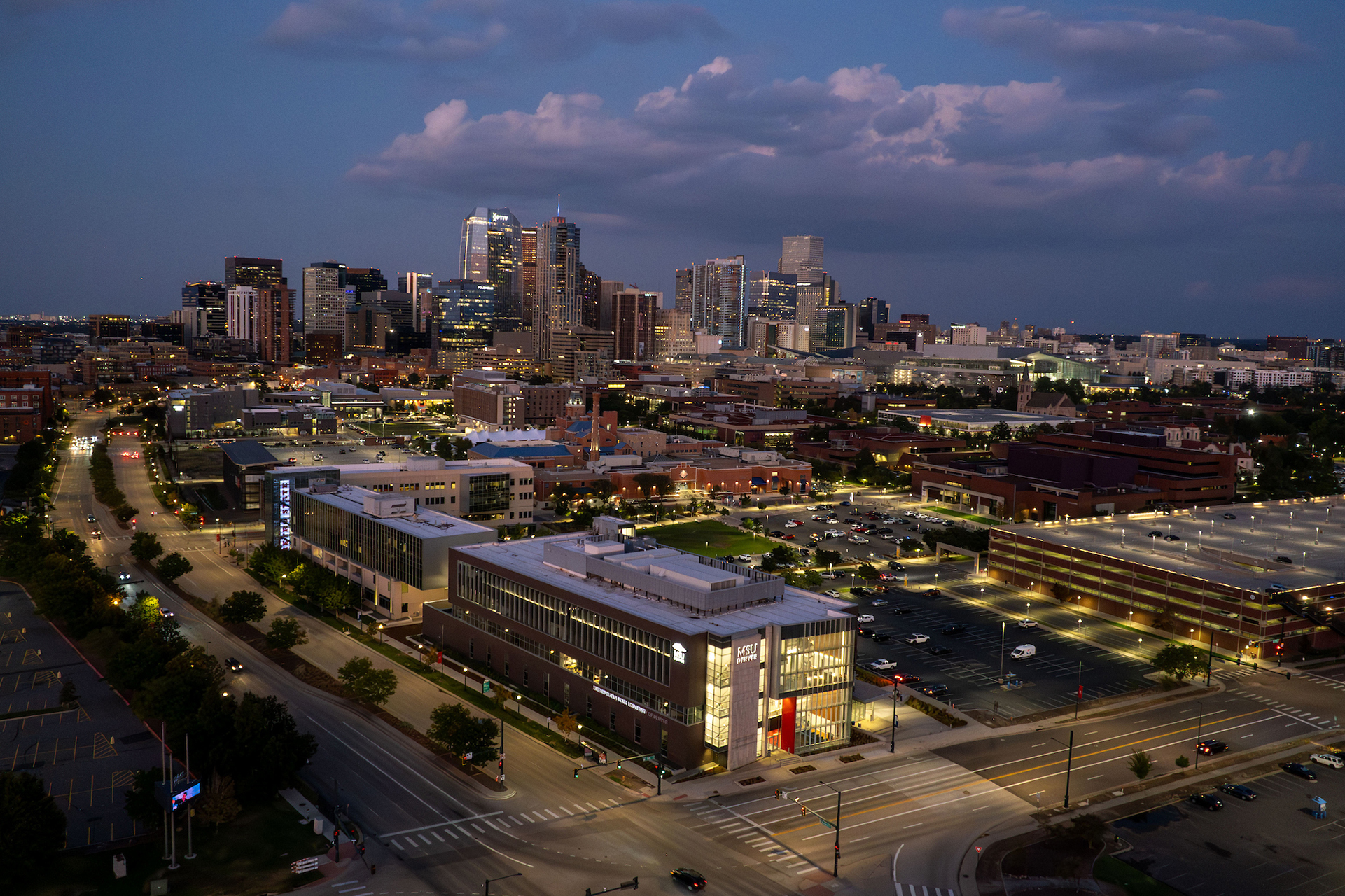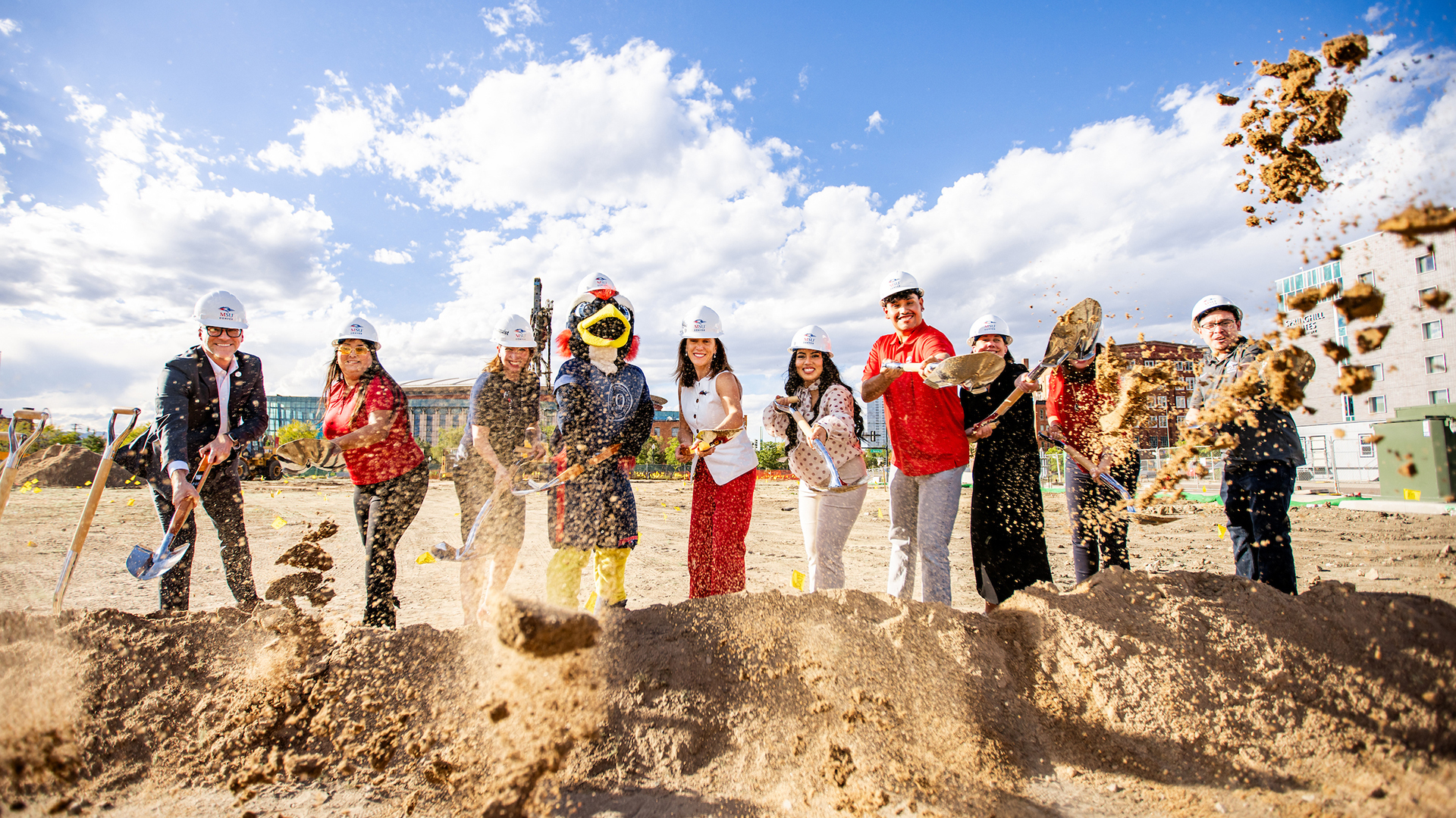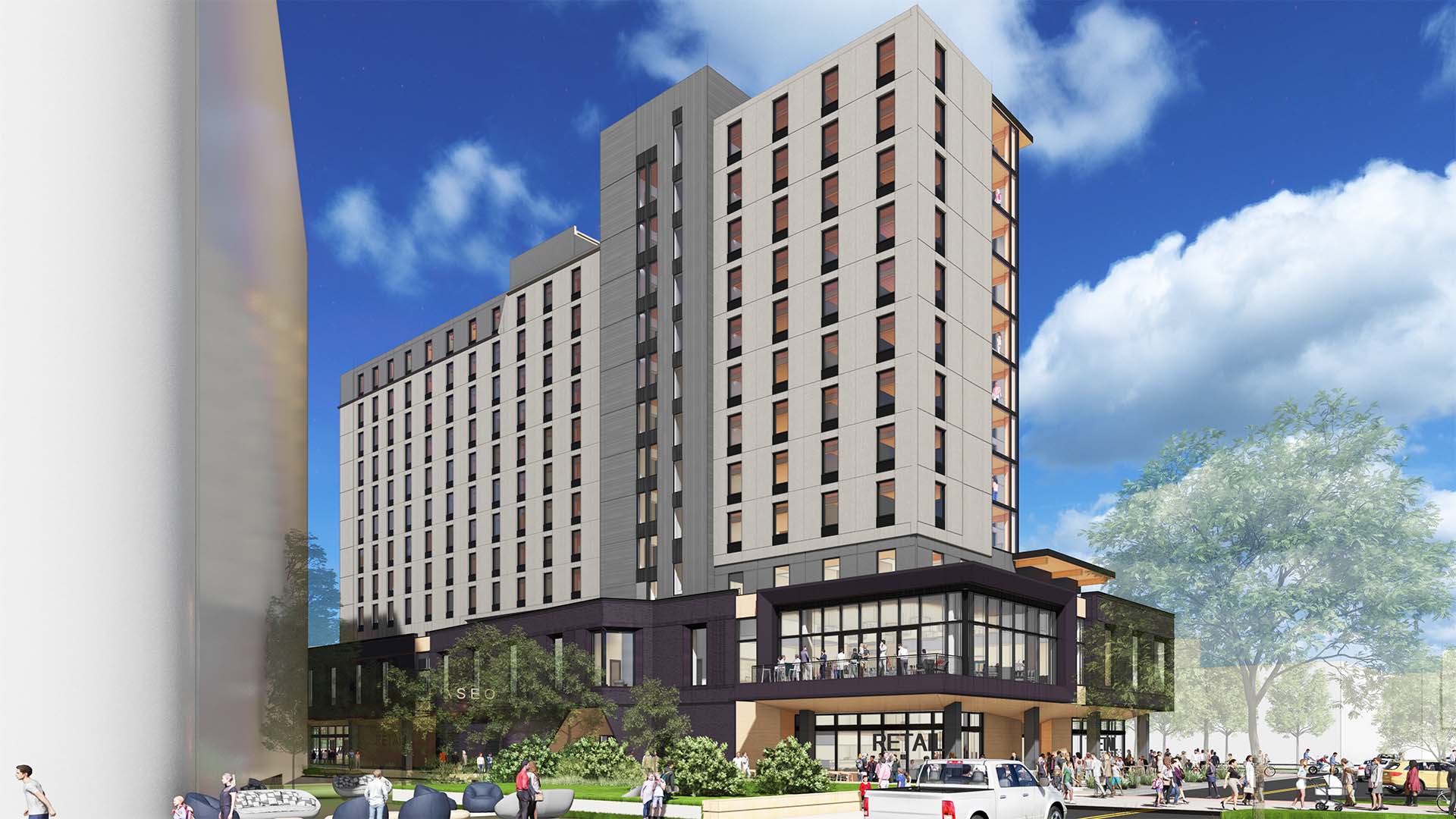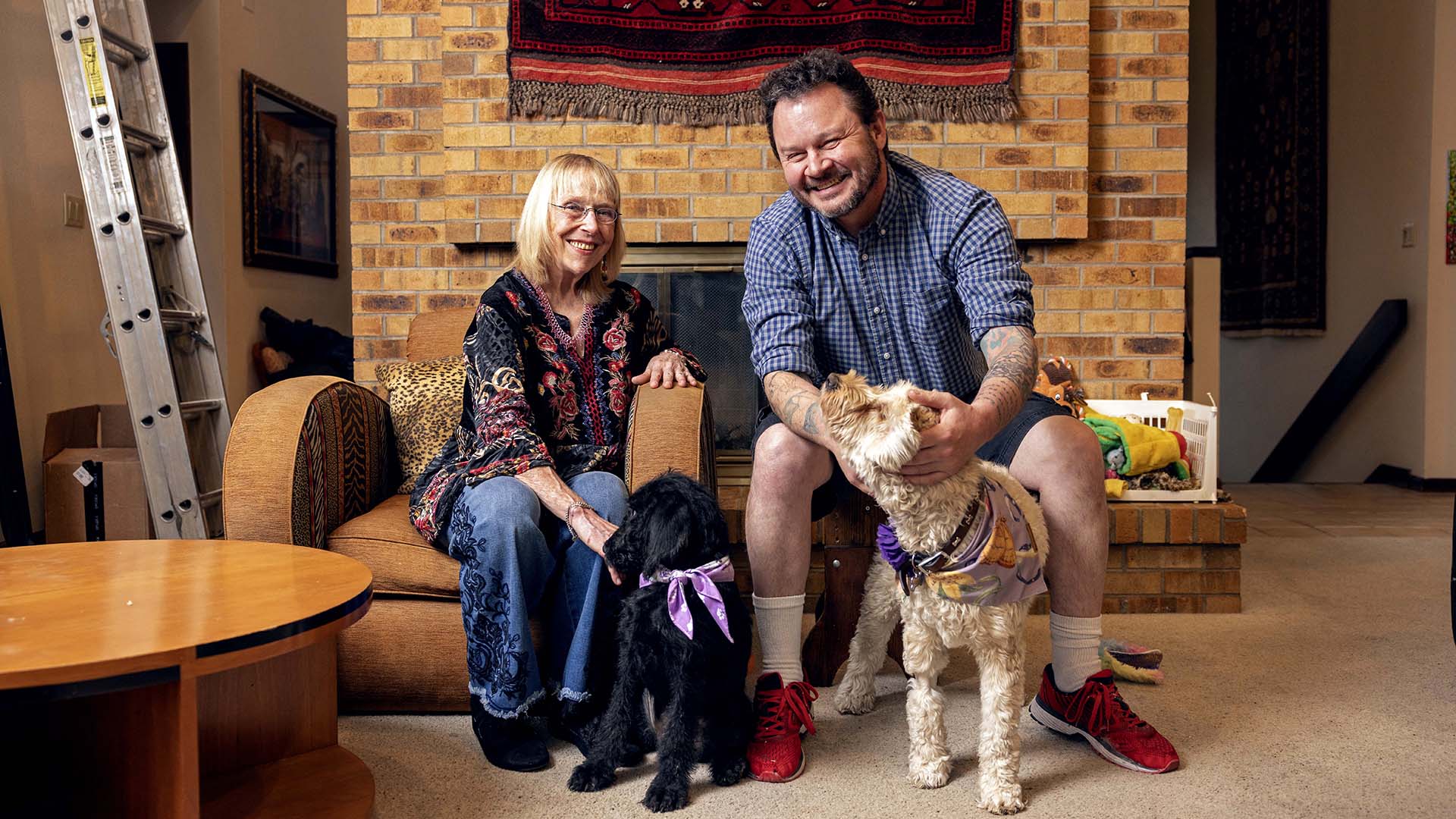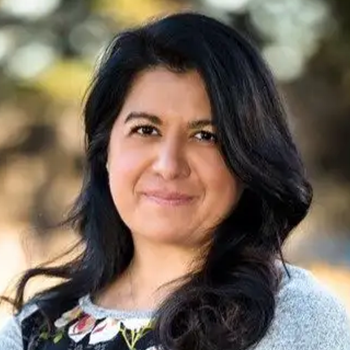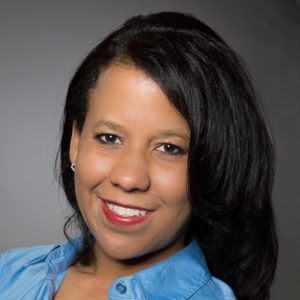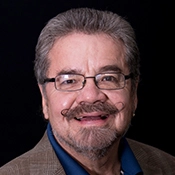High school students facing barriers to college find ‘Pathway to Possible’
New MSU Denver program helps recruit students from rural and underserved communities, provides support needed to succeed in college and their careers.
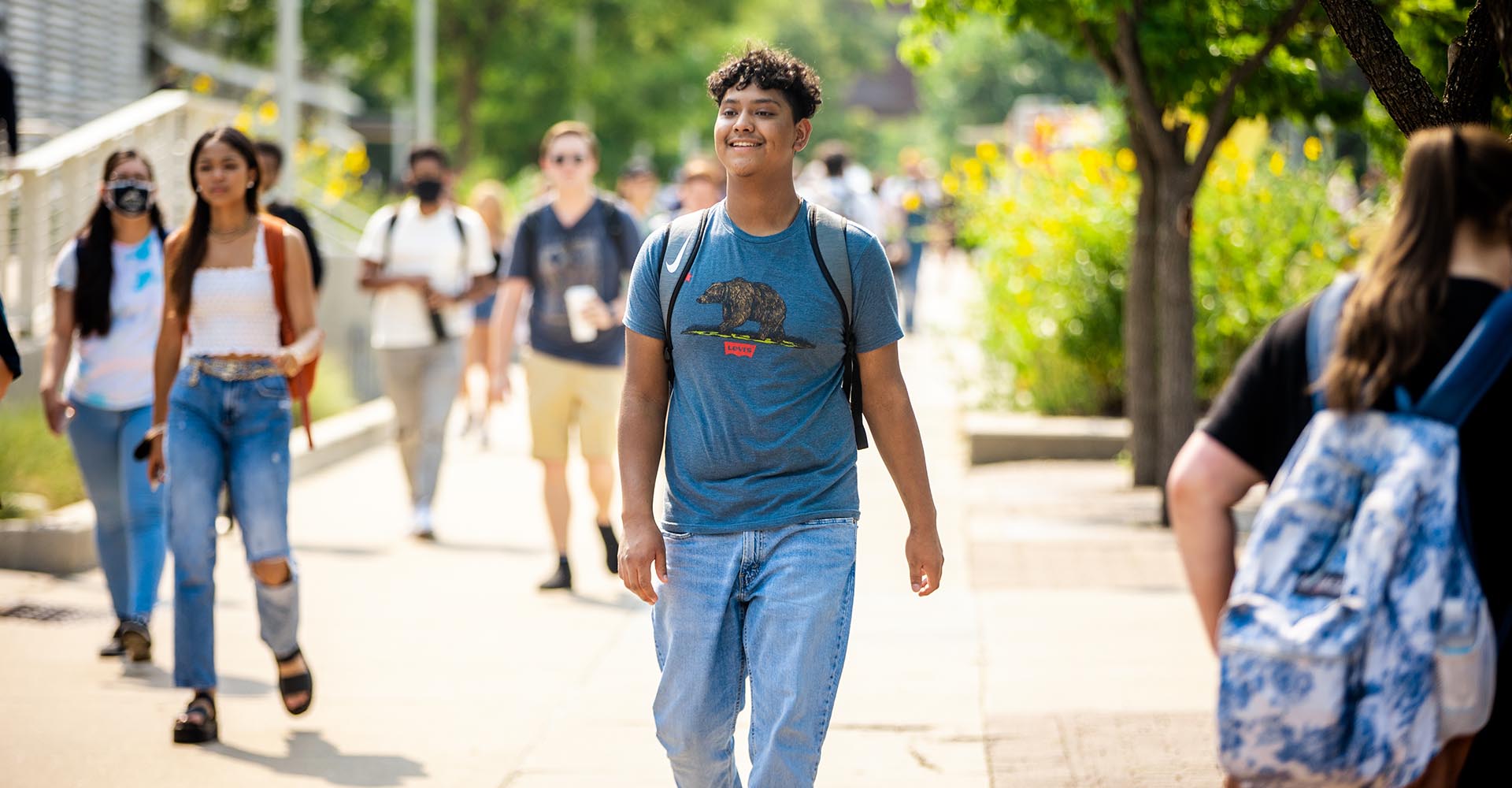
Despite Luis Angel Hernandez’s good grades and strong desire for more education, college appeared to be out of reach in May for the 2021 graduate of the Denver Center for International Studies at Montbello in Denver.
“I really wanted to go to college, but as I looked at the tuition for different schools, it didn’t look like I could afford it,” he said. “I definitely fell into the low-income category.”
That outlook brightened when Hernandez learned of Pathways to Possible (P2P), a program at Metropolitan State University of Denver that creates a path to and through MSU Denver for students from rural and underserved communities.
With financial support, counseling and other P2P support services, Hernandez enrolled in an introductory General Studies course and an MSU Denver orientation class in July. A month later, the recent high school grad became a full-fledged member of MSU Denver’s freshman class.
“The program gave me the exact kind of help I needed,” said Hernandez, who is among the first generation in his family to attend college.

Pathways to Possible is funded by Colorado’s Response, Innovation and Student Equity Fund, a state initiative that allotted millions of federal CARES Act dollars to address K-12 and higher-education equity issues caused and exacerbated by the Covid-19 pandemic.
MSU Denver received $2.38 million, which provides P2P students with:
- A $1,000 annual stipend
- Scholarships for summer courses
- Leadership development
- Success coaches
- Paid summer internships
- Campus employment
- Opportunities to connect with career professionals of their choice
- Connection to faculty
- Support from career counselors
“We’re seeing an immediate impact for the students,” said P2P Director Eric Silva. “We’re helping them enter college and start off on the right foot.”
P2P admission counselors work with Colorado high school officials to identify students of color along with low-income and rural students – P2P’s target. Silva reported that of the 80 students currently in P2P, 91% are first-generation college students and 98.5% identify as students of color.
“We’ve been able to address some of the barriers to enrollment – things like submitting additional documents, confirming financial aid and helping them find campus jobs,” he said. “These processes aren’t always intuitive, and our coaches have been really successful in helping address these issues that may otherwise have kept them from starting their classes.”
Silva said P2P offers “a personal touch and individualized support” for students via five full-time success coaches who connect students with necessary resources.
“This ensures all the boxes have been checked so they get a smooth start at MSU Denver,” Silva said.
Jessica Ortiz can relate to the importance of a smooth start. The Denver South High School graduate, like Hernandez a first-generation student, was “completely lost and didn’t know where to start” in the college application-and-enrollment process.
“But Pathways to Possible really guided me, and it helps me financially, considering my mom is a full-time student and a provider to five children,” said Ortiz, an MSU Denver freshman and a member of the first P2P cohort.
After admission, the program keeps students connected with the University and helps them progress toward their degrees. Participants will spend summer semesters taking part in activities “designed to build social capital, academic self-efficacy, a sense of belonging and overall college aptitude,” Silva said.
P2P also offers employment support by building bridges to companies and organizations that can help participants find jobs and thrive in their careers, he said.
“We know that for many underserved students, it isn’t just the path through college but also the path into their professional careers,” Silva said. “Our grant will track job placement, so we plan to stay connected with alums until we can confidently say they are gainfully employed and on track to their post-graduation goals.”
For more information about P2P and how to apply, contact Silva at 303-605-5620 or [email protected].

